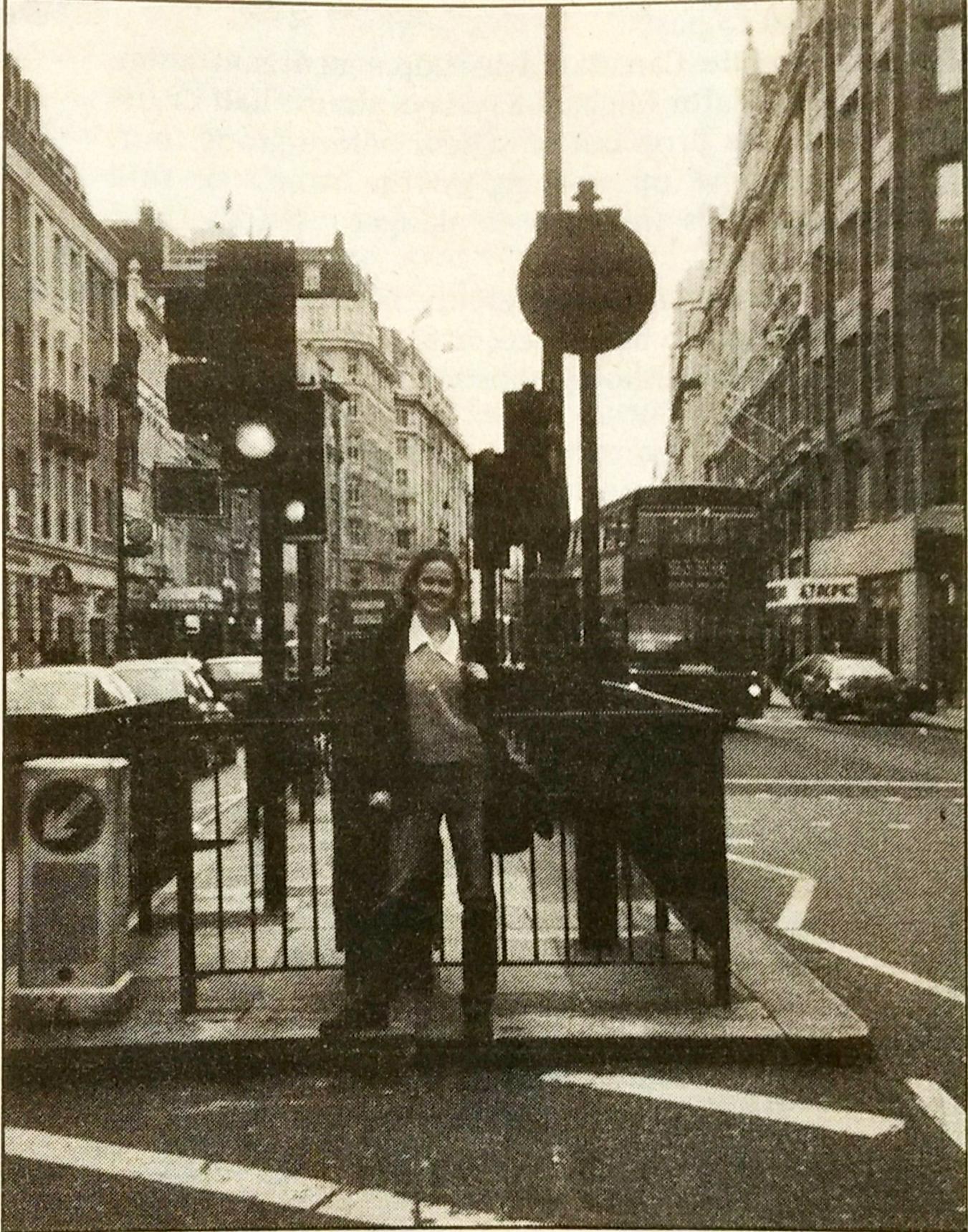By Michelle Osbourne
I noticed the music first, even though it was drowned out by chatter of regular patrons. The music of Oasis was barely audible through the speakers, but it was my first memory of The Prince Albert Pub in London.
I saw a middle-aged grey-haired man, smoking like a fiend, in front of my computer. He stood up and shook my hand. “Welco’ toa Prrince Albert,” he said with a thick Scottish accent. He was an intimidating, burly sort but polite.
We proceeded with the interview. He asked me if I had ever worked in a bar. I said no, but I was willing to learn. He hired me. I started the next day.
And so began my meagre career in England. Only a month earlier, I had decided to get serious about working overseas for the summer. After a summer spent working retail in Nova Scotia, my friend Jill and I wanted something different. We wanted adventure, excitement and the envy of friends.
So, after buying the backpack, converting cash and getting a visa, we flew to London, safe in the knowledge the Student Work Abroad Programme (SWAP) was there to help us.
The first day, we headed off to the SWAP office to find a job. Pubs are the most fun, they told us, but the real money is in clerical work. I wanted fun and Jill couldn’t type, so we wrote down a few places from SWAP’s job listings board and began to call.
The Prince Albert was my second stop of the day.
The clientele was an eclectic collection of theatre snobs, actors, drunkards, drug dealers — you name it. My job was to pour beer, look pretty and smile. My boss told us several times that pretty girls bring back the male customers.
So, for five nights a week, I was paid a lousy 120 pounds for pouring beer for scores of patrons.
Thirty-five pounds of that went to rent of a house. We were looking for cheap accomodations so we could save money for travel. A co-worker offered two beds in her place. It turned out to be two mattresses on the floor in a room with two Polish guys and an Australian.
It was crowded, but the residents, mostly foreigners, were travellers pitstopping to find work or adventure. Typical days at The House were spent suntanning in the tiny backyard and drinking snakebites — a concotion made from lager, cider and black currant.
The House was also known for its drug supply. We had a resident drug dealer, Larry, who would stop by every few days (I think he had his own key) and drop off the latest stash of speed, hash, ecstasy, acid or the partying drug of the week,
Drugs in London were as common as Starbucks coffee — they were available on every corner. They were accepted as a part of nightlife culture. It shocked me at first, but when you come home to see your roommates doing speed on the kitchen table, you learn to accept it.
After the pubs closed on weekends, young people headed for the clubs, which serve alcohol until 3 a.m.
Saturday was our playnight so one weekend, accompanied by two coworkers, we headed to one of the cheaper establishments near Oxford Street. Hombre’s was everything you would expect in a ‘70s B-movie — Christmas lights in the summer, a disco floor and bartenders in bowties. The crowd, young and overdressed, was jubilant from one substance or another. But at one pound a drink, what more could you expect?
Not to say it was all bad. I don’t regret anything for a minute. The thing about travelling is that anything that happens to you, good, bad or ugly, there is a story to tell when you get home.
If you are thinking about working overseas, keep an open mind. It may take a while to get used to, but what you will get out of it will be more than just a souvenir keychain and a couple of photos — you’ll truly know the heart of the culture.











Leave a Reply